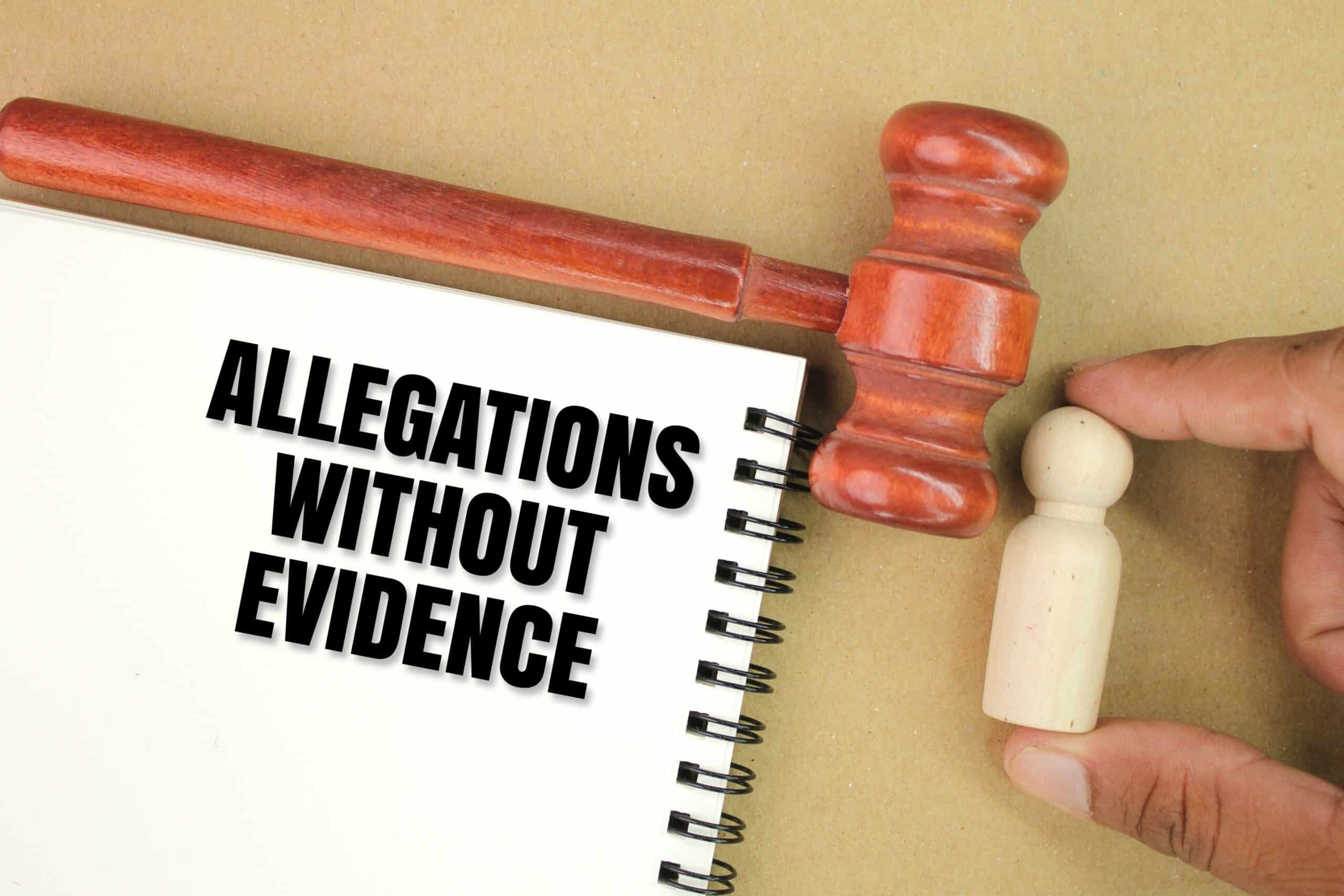Domestic violence is a societal issue demanding a multifaceted approach. While addressing genuine abuse is paramount, ensuring fair treatment for the accused involves acknowledging the potential for, and complexities surrounding, false allegations in domestic violence cases.
This blog explores potentially recurring patterns of false allegations in Minnesota domestic violence cases, emphasizing the importance of recognizing these complexities and advocating for a balanced approach that protects victims while upholding the rights of the accused.
The Delicate Balance: Fact and Fiction in Domestic Violence Allegations
Domestic violence takes various forms, ranging from physical assault and emotional abuse to financial control and isolation. Addressing genuine cases requires offering support and holding perpetrators accountable. However, false allegations can have devastating consequences:
Wrongful Convictions
Individuals falsely accused face significant legal repercussions, including jail time, lost employment, and societal stigma.
Erosion of Public Trust
Frequent occurrences of false accusations can erode public trust in genuine domestic violence claims, potentially hindering support systems and resources for actual victims.
Impact on Families
False accusations can tear families apart, inflicting emotional and psychological distress on all parties involved, including children who may witness the legal proceedings.
Examining the Landscape: Potential Red Flags and Recurring Patterns
Recognizing and addressing genuine domestic violence remains paramount. However, acknowledging the potential for false allegations necessitates considering:
Inconsistency
Inconsistencies in the accuser’s narrative, timeline of events, or details surrounding the alleged abuse can raise questions about the verity of the claims.
Lack of Supporting Evidence
The absence of corroborating evidence, such as medical records, witness testimonies, or objective documentation, may raise concerns about the validity of the accusations.
Personal History of Manipulation
A history of manipulative behavior or false accusations in past relationships may warrant further investigation, particularly when coupled with other red flags.
Understanding Potential Motivations: Beyond Malice
It’s crucial to note that false allegations are not always motivated by malicious intent. While intentional deception cannot be condoned, understanding potential motivations can contribute to a more comprehensive understanding of the issue:
Gaining Leverage in Custody Disputes
During divorce or child custody battles, individuals may resort to false allegations to gain an advantage in negotiations.
Mental Health Issues
Individuals experiencing mental health struggles may make false accusations due to factors like paranoia, manipulation tactics, or difficulty distinguishing between reality and perception.
Fear of Retaliation
In situations where genuine abuse has occurred, victims may fear retaliation or further harm if they report the abuse, leading them to fabricate details or exaggerate the severity of the incident.
Navigating the Legal Maze: Importance of Due Process and Strong Defense
Recognizing the complexities surrounding both genuine domestic violence and the potential for false allegations necessitates a balanced approach in legal proceedings:
Upholding Due Process
The legal system must uphold the fundamental principle of due process, ensuring fair treatment of all individuals, including those accused of domestic violence, with the right to a fair trial and the presumption of innocence until proven guilty beyond a reasonable doubt.
Investigating Thoroughly
Law enforcement agencies are responsible for conducting thorough and unbiased investigations, carefully examining all available evidence, exploring potential inconsistencies in the allegations, and avoiding assumptions based solely on accusations.
Building a Strong Defense
Individuals facing false domestic violence charges must have access to legal representation and the opportunity to build a strong defense that challenges the accusations and presents exonerating evidence.
The Role of Legal Representation: Fighting for Justice and Protecting Rights
An experienced criminal defense attorney can play a crucial role in navigating the complexities of domestic violence cases, especially when false allegations are suspected:
Investigating the Accusations
Attorneys can delve deeper into the details of the case, investigating the accuser’s background, gathering evidence to support the defense, and potentially identifying inconsistencies in the allegations through witness statements, medical records, and communication logs.
Challenging the Evidence
Through legal arguments, cross-examination of witnesses, and presentation of counter-evidence, the defense can challenge the validity of the accusations and raise reasonable doubt in the court. This may involve highlighting inconsistencies, questioning the reliability of witnesses, or presenting alternative explanations for injuries or events.
Advocating for Fair Treatment
Experienced lawyers can ensure the accused receives fair treatment throughout the legal process, protecting their fundamental rights and ensuring a balanced approach to achieving justice. This includes advocating for proper bail hearings, challenging unfair restraining orders, and striving for fair and impartial pre-trial and trial proceedings.
Moving Towards a Balanced Approach: Advocacy and Systemic Changes
Addressing the complexities surrounding false accusations requires a multifaceted approach:
Victim Support
Continued support and resources for actual victims of domestic violence are crucial to ensure their safety and well-being. This encompasses providing comprehensive support services, increasing access to emergency shelters, and enhancing mental health and legal assistance.
Educational Initiatives
Educational initiatives aimed at raising awareness about the complexities of domestic violence, including the potential for false allegations, can promote understanding and encourage responsible reporting practices. This includes training law enforcement officers, legal professionals, and the public on identifying red flags and conducting unbiased investigations.
Comprehensive Review of Legal Practices
An ongoing review and potential revisions of legal practices regarding domestic violence cases can be crucial. This could involve exploring alternative initial response measures, implementing stricter protocols for evidence gathering, and fostering collaboration between law enforcement, legal professionals, and victim support organizations to ensure thorough investigations that consider all sides of the case.
Ultimately, a balanced approach that prioritizes victim protection while safeguarding the rights of the accused is paramount. Recognizing the complexities surrounding false allegations in domestic violence cases is crucial in navigating this sensitive issue and striving for a justice system that upholds fairness, accountability, and the pursuit of genuine justice for all parties involved.
Remember, this blog post is for informational purposes only and should not be taken as legal advice. If you or someone you know faces domestic violence, seeking help from law enforcement and domestic violence support organizations is crucial. Consulting with a qualified criminal defense attorney is essential if facing legal charges.
About the Author:
Christopher Keyser is an AV-Preeminent rated criminal and DWI defense attorney based in Minneapolis who is known for fighting aggressively for his clients and utilizing innovative tactics to get the most positive results. He has been featured in numerous media outlets due to the breadth and depth of his knowledge and has been named a Certified Specialist in Criminal Law by the Minnesota Bar Association. Mr. Keyser is Lead Counsel rated, and he has received recognition for his criminal law work from Avvo, Expertise, and Super Lawyers.








